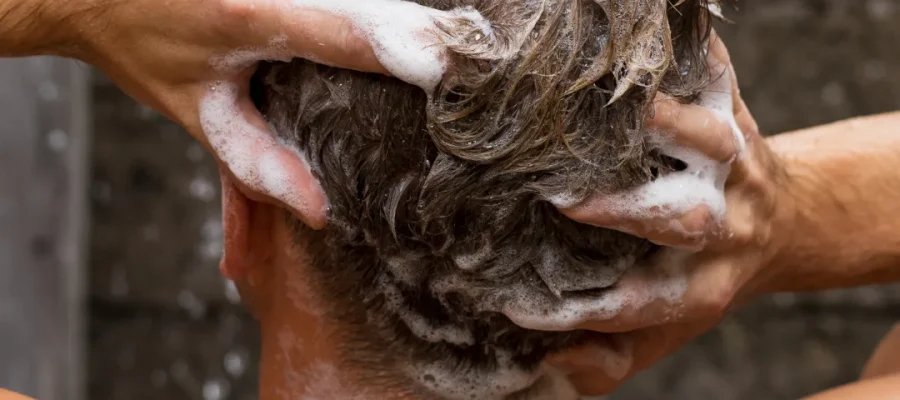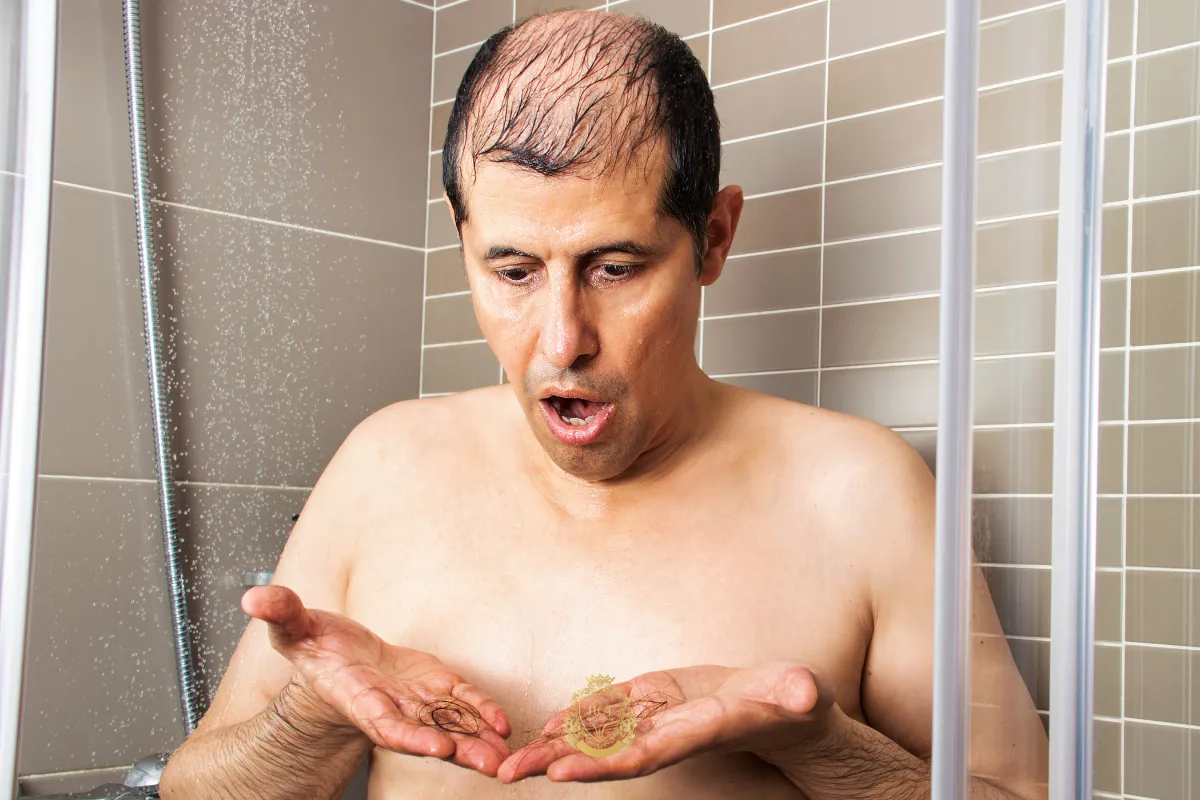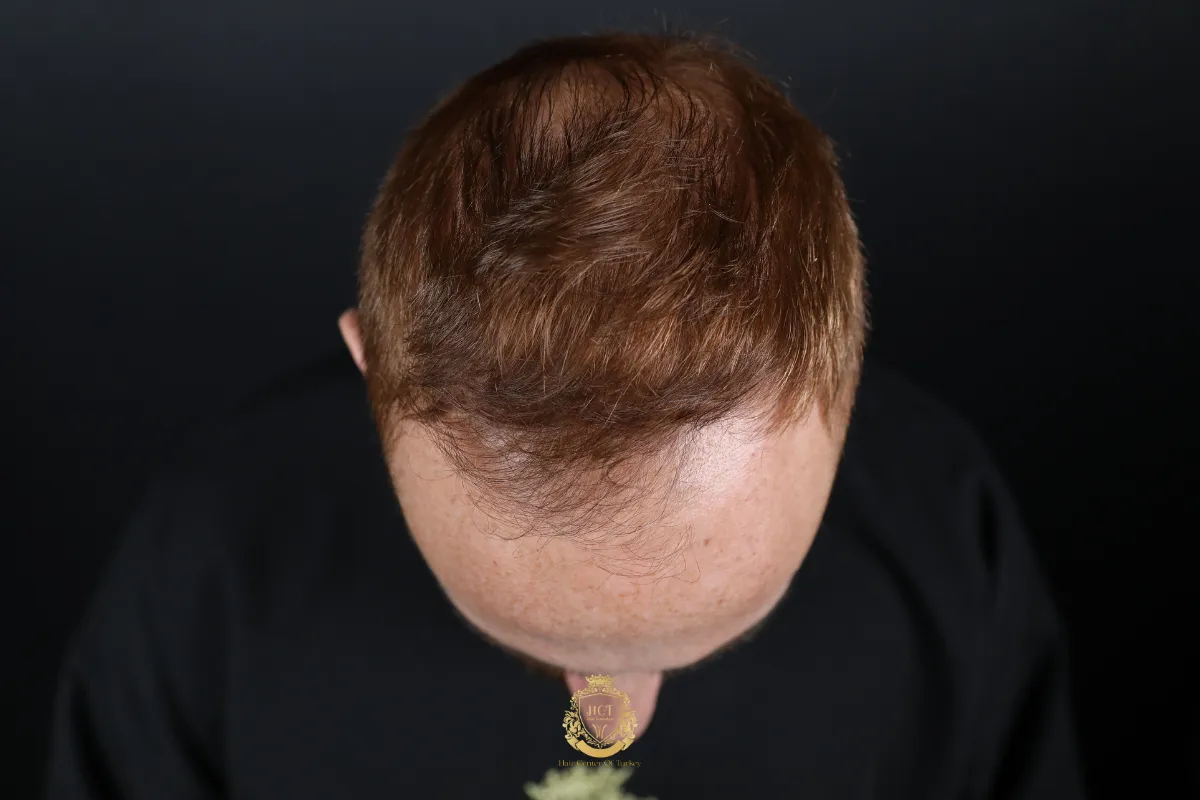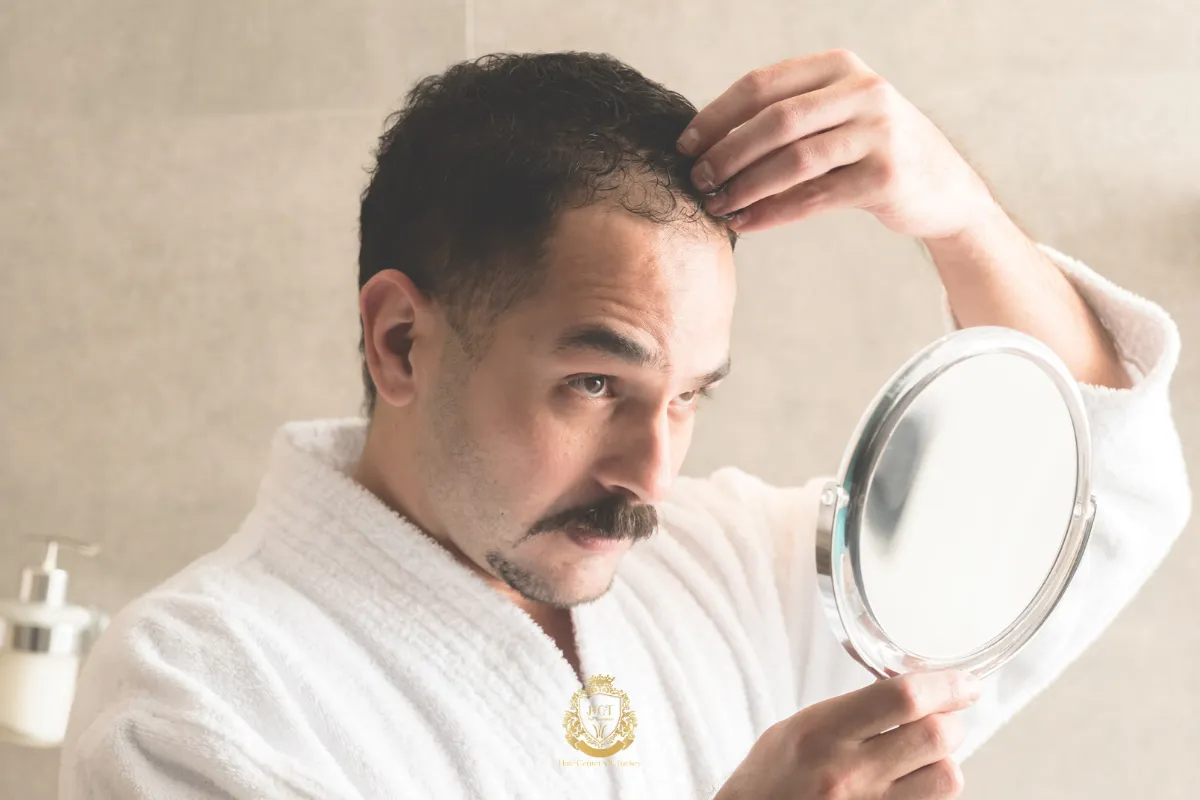
How Much Hair Loss Is Normal in the Shower?
Seeing hair in the drain is usually normal. Most people shed about 50–100 hairs per day, and washing can release hairs that were already in the shedding phase. If you’re noticing clumps, widening part lines, bald patches, scalp symptoms, or shedding that lasts longer than 6–8 weeks, it’s worth getting checked.

What Counts As Normal Hair Shedding?
Hair grows in cycles. A small percentage of hairs are always in the shedding (telogen) phase, so some daily loss is expected. Because many loose hairs stay caught in surrounding strands, they often come out together during shampooing or detangling.
Typical Numbers
For many adults, a normal range is:
- About 50–100 hairs per day on average.
- A bit more on wash days if you wash less frequently.
- More noticeable shedding if you have long hair, curly hair, or dense hair (it’s simply easier to see).

Why Hair Looks Like It Sheds More in the Shower
- Water loosens hairs that are ready to fall out, so they release at the same time.
- Wet hair stretches and tangles more easily, which can make breakage look like shedding.
- Shampooing and scalp massage lift oil and buildup, freeing hairs that were already detached.
Shedding vs. Breakage: How to Tell the Difference
Shedding means the hair falls from the root, often with a tiny white bulb at one end. Breakage is a snap along the strand and usually shows shorter pieces with no bulb. Both can happen, but the fixes are different.
Quick Checks
- If hairs are mostly full-length: it’s more likely shedding.
- If you see lots of short fragments: it’s more likely breakage from heat, tight styles, or rough detangling.
- If the hairline and part look the same: occasional shedding is usually less concerning.

Common Reasons for Excess Hair Loss While Washing
If shedding seems higher than usual, it’s often linked to a trigger that shifts more hairs into the telogen phase. Some causes are temporary, while others need treatment.

Lifestyle and Hair-Care Factors
- Stress, poor sleep, rapid weight loss, or major illness in the past 2–3 months.
- Over-washing or harsh cleansing that dries the scalp and increases friction.
- Frequent heat styling, chemical processing, or tight hairstyles that weaken the shaft.
- Product buildup that irritates the scalp or makes detangling rough.
Medical and Hormonal Triggers
- Postpartum shedding, perimenopause/menopause-related changes, or thyroid conditions.
- Iron deficiency or low vitamin D (common and often overlooked).
- Scalp inflammation such as seborrheic dermatitis, psoriasis, or infections.
- Pattern hair loss (androgenetic alopecia), which can make shedding feel more dramatic over time.

How to Reduce Hair Loss in the Shower
Be Gentler on Wet Hair
- Detangle before washing when possible, especially if your hair knots easily.
- Use a wide-tooth comb or detangling brush after conditioning, starting from the ends.
- Avoid vigorous towel rubbing; squeeze water out with a soft towel or T-shirt.
Choose Scalp-Friendly Products
- Pick a mild, sulfate-free cleanser if your scalp feels dry or irritated.
- Focus shampoo on the scalp, and let suds rinse through the lengths.
- Use conditioner on mid-lengths and ends to reduce tangling and breakage.
Support Hair Growth Outside the Shower
- Aim for protein at each meal, plus iron- and zinc-rich foods.
- Manage stress with realistic routines (walking, breathing exercises, consistent sleep).
- Limit high-heat styling and use heat protection when you do style.
When to Worry and See a Professional
Consider speaking with a dermatologist or trichologist if you notice any of the following. Early evaluation helps rule out treatable causes and prevents unnecessary worry.
- Sudden shedding with visible clumps that continues beyond 6–8 weeks.
- Bald patches, a rapidly widening part, or a receding hairline.
- Scalp symptoms such as burning, itching, pain, heavy scaling, or sores.
- Hair loss after starting a new medication or after a recent illness.
- Signs of anemia or hormonal issues (fatigue, dizziness, irregular periods, unexpected weight changes).
FAQ
Is it normal to lose hair every time I wash?
Yes. Washing often releases hairs that were already ready to shed, so it can look like a lot at once. If your overall density looks stable and you’re not seeing clumps or scalp symptoms, it’s usually within a normal range.
Why do I shed more when I don’t wash daily?
Loose hairs can stay trapped until wash day. If you shampoo less often, several days of normal shedding may come out together.
Can stress really cause hair shedding in the shower?
It can. Stress and major life events may trigger telogen effluvium, which often shows up as increased shedding a few months later.
What’s the best water temperature for washing hair?
Lukewarm water is kinder to the scalp and reduces dryness. Very hot water can strip oils and make the scalp feel tight or itchy.
Should I count hairs in the drain?
Counting can be misleading because hair length and wash frequency change what you see. If you want a simple check, take photos of your part line and hairline once a month in the same lighting and compare over time.
If you’re concerned about ongoing shedding, bring a list of recent stressors, illnesses, medications, and diet changes to your appointment. Basic bloodwork (such as iron studies and thyroid testing) is often part of an evaluation, depending on your symptoms.




